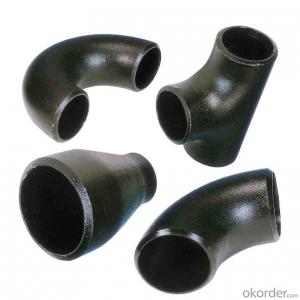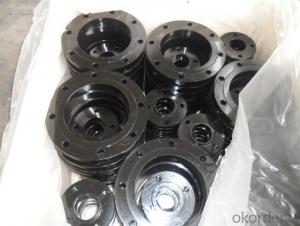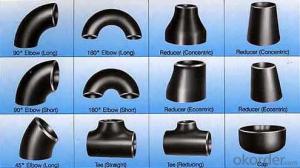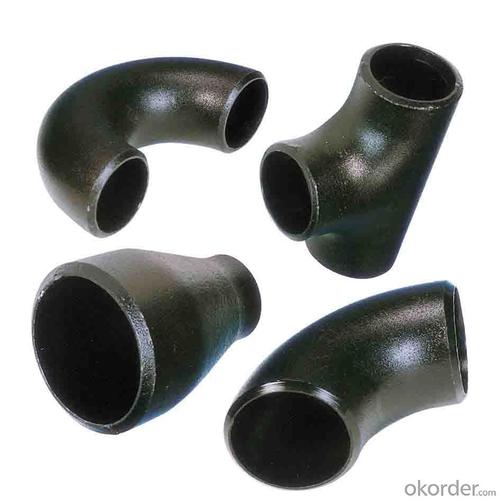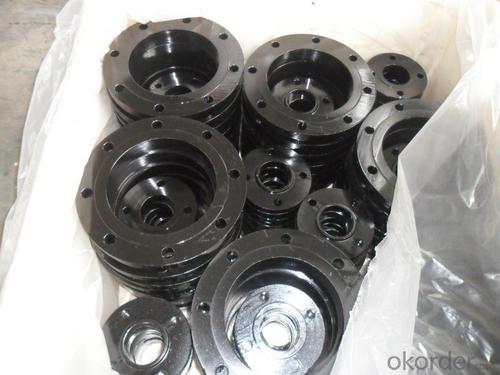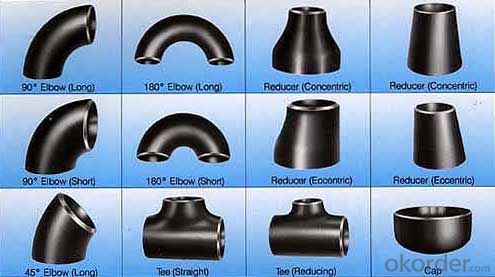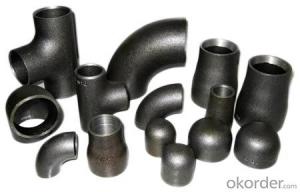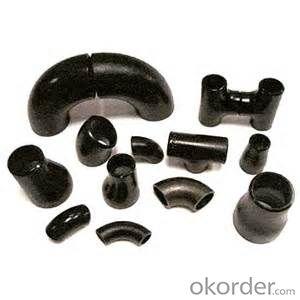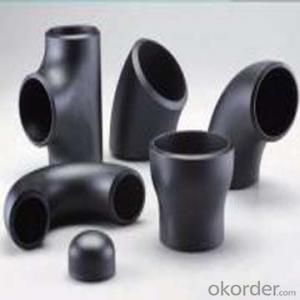CARBON STEEL PIPE FITTINGS ASTM A234 TEE 4''
- Loading Port:
- Tianjin
- Payment Terms:
- TT OR LC
- Min Order Qty:
- 1 m.t.
- Supply Capability:
- 30000 m.t./month
OKorder Service Pledge
OKorder Financial Service
You Might Also Like
Specifications
1.we produce seamless steel pipe
2.size:48-219*4.5-45mm
3.ISO 9000 approved
4.Market:south/east Asia,Mid-east,South America
seamless steel pipe
Material J55 K55 N80 L80 P110.etc
Standard ASTM JIS
Usage conveying oil gas ,oil pipe line,pipe material collar,oil nature gas,
Packing wooden cases or wooden pallet ,export standard package
Others:Special design available according to requirement
Anti-corrosion available and high temperature resistence
Delivery time 30days
Payment term T/T L/C
Name | API oil casing pipe | ||||
Out Diameter | Wall thickness | Material | Thread | Length | |
in | mm | ||||
5 1/2 | 139.7mm | 6.20 | J55/K55/N80 | LTC/STC/BTC | R2 |
6.98 | |||||
7.72 | |||||
9.17 | |||||
10.54 | |||||
6 5/8 | 168.28mm | 7.32 | J55/K55/N80 | LTC/STC/BTC | R2 |
8.94 | |||||
10.59 | |||||
12.06 | |||||
12.06 | |||||
8 5/8 | 219.08 | 8.94 | H40 | S/L/B | 9 5/8R2 |
J55/K55 | S/L/B | ||||
10.6 | L80 | L/B | |||
12.7 | L80 C95 | L/B | |||
14.15 | P110 | L/B | |||
9 5/8 | 244.48 | 13.84 | J55 K55 | R2 | |
15.11 | L80 | L/B | |||
10 3/4 | 273.05 | 11.43 | J55 K55 | S/B/E | R2 |
13.84 | P110 | S/B | |||
15.11 | P110 | S/B | |||
11 3/4 | 298.45 | 12.19 | J55 K55 | S/B | R2 |
10.96 | J55 K55 | S/B | |||
13 3/8 | 339.72 | 12.19 | J55 K55 L80 | S/B | R2 |
10.92 | J55 K55 | S/B | |||
13.06 | L80 | S/B | |||
Coupling and thread can be required according to customer requirment
- Q: How do steel pipes withstand pressure?
- Steel pipes are able to withstand pressure due to their high strength and durability. The material properties of steel, including its tensile strength and resistance to deformation, allow it to withstand the internal forces caused by pressure without experiencing significant distortion or failure. Additionally, the seamless construction of steel pipes ensures that there are no weak points or joints that could compromise their ability to withstand pressure.
- Q: Which is more load-bearing, the same thickness of steel pipe and steel bar?
- The same length, the same pipe diameter, the same material strength is hollow, the ratio of area of steel (solid), and the cyclical and slender radius smaller than the larger, so the longitudinal stability coefficient is smaller, three factors, two factors are weak in steel reinforced, another factor: strength, they are the same, no doubt, steel reinforced bearing less than.
- Q: How are steel pipes used in the manufacturing of power plants?
- Steel pipes are extensively used in the manufacturing of power plants for various applications such as transporting water, steam, and other fluids, as well as for structural purposes. They are commonly used for the construction of boiler tubes, heat exchangers, condensers, and steam distribution systems. Additionally, steel pipes are essential for conveying fuel gases and air in power plants, ensuring efficient operation and safety.
- Q: How are steel pipes used in water transportation?
- Steel pipes are commonly used in water transportation systems as they are strong and durable, allowing for the safe and efficient delivery of water. These pipes are used to create networks that transport water from sources like reservoirs or treatment plants to homes, businesses, and other areas where water is needed. Steel pipes offer excellent corrosion resistance, ensuring the water remains clean and uncontaminated during transport. Additionally, their seamless construction minimizes leakage and ensures a consistent flow of water, making them an ideal choice for water transportation infrastructure.
- Q: What is the weight of a steel pipe?
- The weight of a steel pipe can vary depending on its dimensions and thickness.
- Q: What is the cost of steel pipes compared to other materials?
- The cost of steel pipes compared to other materials can vary depending on factors such as size, grade, and market conditions. However, in general, steel pipes tend to be more cost-effective and economical compared to other materials like copper or PVC. Steel is a durable and versatile material that offers excellent strength and longevity, making it a preferred choice in various industries such as construction, oil and gas, and plumbing.
- Q: Can steel pipes be used for conveying slurries or abrasive materials?
- Yes, steel pipes can be used for conveying slurries or abrasive materials. Steel pipes are known for their strength and durability, making them suitable for handling heavy-duty applications. They are resistant to wear, corrosion, and impact, which makes them ideal for conveying abrasive materials or slurries that contain solids or particles. Additionally, steel pipes can withstand high pressure and maintain their structural integrity, ensuring the safe and efficient transportation of slurries or abrasive materials.
- Q: What are the different types of steel pipe end connections?
- There are several types of steel pipe end connections, including threaded, welded, flanged, grooved, and compression fittings.
- Q: How do steel pipes compare to other pipe materials like PVC or copper?
- Steel pipes have several advantages over other pipe materials like PVC or copper. Firstly, steel pipes are incredibly strong and durable, making them suitable for high-pressure applications and long-term use. They have a higher resistance to cracking or breaking, which is especially beneficial in demanding environments. Secondly, steel pipes have excellent heat resistance, making them ideal for transporting hot fluids. On the other hand, PVC pipes are more lightweight, cost-effective, and easy to install, making them suitable for non-pressure applications. Copper pipes are known for their corrosion resistance and ability to handle high temperatures, but they are typically more expensive. Overall, the choice between steel, PVC, or copper pipes depends on the specific requirements of the application, considering factors like pressure, temperature, cost, and ease of installation.
- Q: What is the typical diameter range of steel pipes?
- The diameter of steel pipes can vary depending on factors such as the intended use, industry standards, and project requirements. Generally, steel pipes come in a wide range of diameters to cater to different needs. Typical sizes can range from small diameters of approximately 0.5 inches (12.7 mm) to larger diameters of several feet or more. This wide range allows for various applications, including plumbing, oil and gas transportation, structural support, and industrial processes. Ultimately, the diameter of a steel pipe will be determined by the specific requirements of the project or application.
Send your message to us
CARBON STEEL PIPE FITTINGS ASTM A234 TEE 4''
- Loading Port:
- Tianjin
- Payment Terms:
- TT OR LC
- Min Order Qty:
- 1 m.t.
- Supply Capability:
- 30000 m.t./month
OKorder Service Pledge
OKorder Financial Service
Similar products
Hot products
Hot Searches
Related keywords
